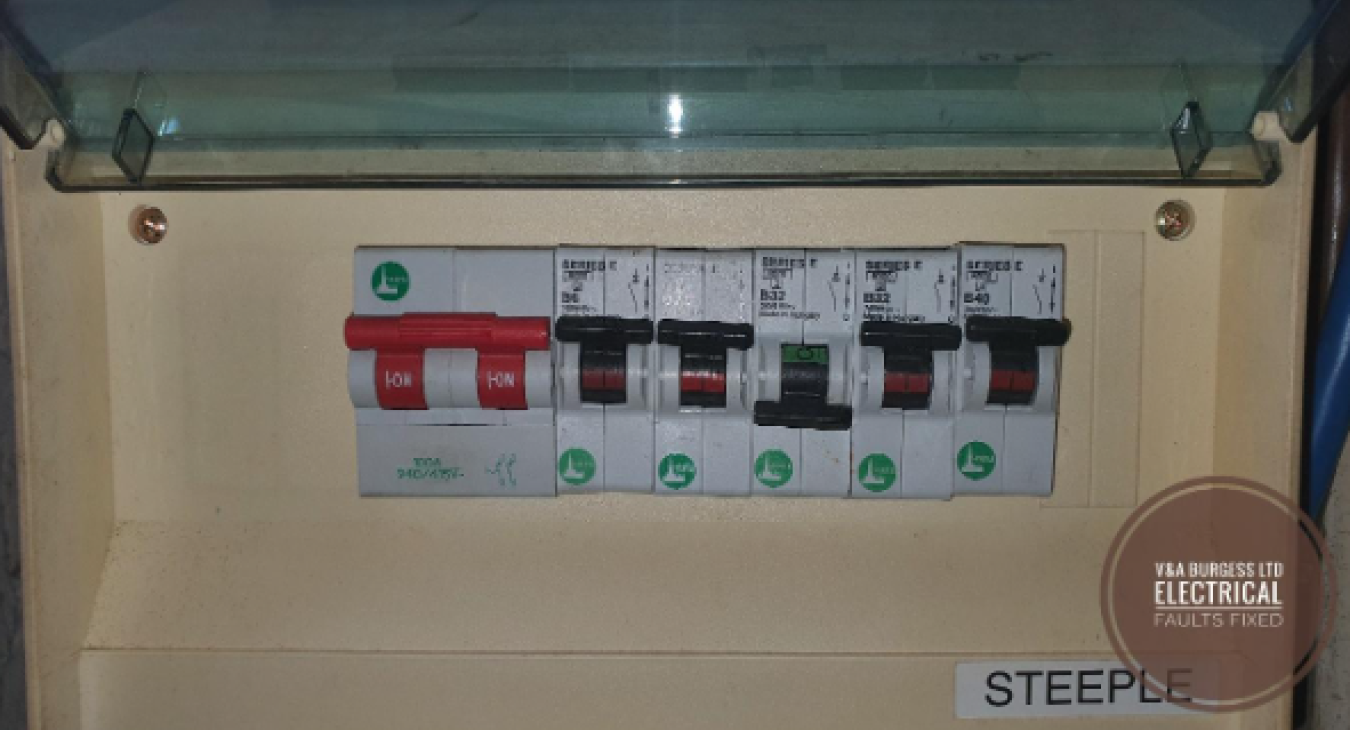Blown electrical fuse, tripped breaker, Safety? - Electrical Faults Fixed
Electrical problems can be worrying so let’s look at WHAT DO TRIPPED CIRCUIT BREAKERS AND BLOWN FUSES INDICATE so you know what to do in an electrical emergency.
Blown fuses and tripped circuit breakers are not simply an inconvenience, they indicate that electrical issues are occurring leading to safety hazards with your wiring system.
The occasional blown fuse or tripped switch may be as a result of a blown lamp or light bulb but more regular occurrences mean that electrical fires, equipment damage and possibly personal injury are real possibilities.
We will take a look at the common causes and reasons for blown fuses and tripped circuit breakers, what they may mean about the condition of the electrical system, its circuits, fuse box and why you should call a licensed electrician to carry out necessary repairs rather than ignoring the situation.
Back to top1) Why Fuses Blow and Circuit Breakers Trip
When a tripped circuit breaker or blown fuse occurs, it is generally as a result of electric current exceeding the capabilities of the circuit. Electrical systems are designed and installed to cope with a certain amount of electrical current safely. When the safe level is exceeded the circuit breaker will trip or the fuse will blow to disrupt the flow of electricity in the circuit.
This interruption in power flow is a built-in safety feature to protect against electrical hazards such as electrical fires, excessive current flow, and damage to electrical circuits, devices and appliances.
Back to top2) Common Causes of Blown Fuses and Tripped Circuit Breakers
2.1) Overloaded Circuits
One of the most common causes of blown fuses and tripped breakers is an overloaded circuit. When too many electrical appliances are in use on a single circuit, they draw more power than the circuit can safely handle. This is particularly common in older homes where wiring may not be designed for the high power demands of modern electrical equipment such as air conditioners, heating equipment or large kitchen appliances.
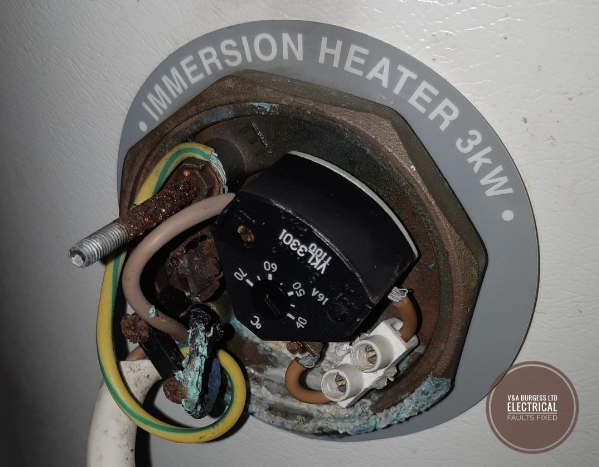
2.2) Short Circuits
A short circuit happens when the hot wire (or live) comes into contact with the neutral wire or another conductive surface. This creates a rapid an dangerous surge in current, causing the fuse to blow or the circuit breaker to trip. Short circuits can be caused by faulty wiring, loose connections, or damaged electrical components.
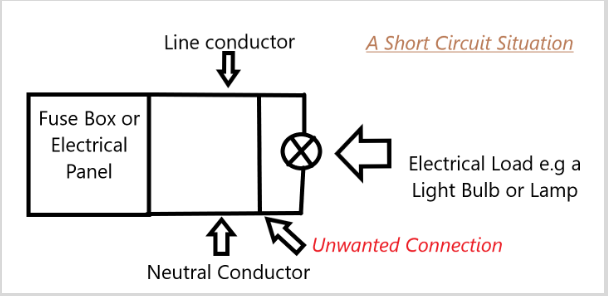
2.3) Ground Faults (or Earth Faults)
A ground fault occurs when the hot wire touches the ground wire or a grounded part of an appliance, resulting in a flow of electricity to the ground. This can cause a GFCI breaker (Ground Fault Circuit Interrupter) or RCD to trip, preventing electric shock. Ground faults are particularly dangerous in damp conditions like kitchens, bathrooms, or outdoor settings where electrical outlets are more exposed to moisture.
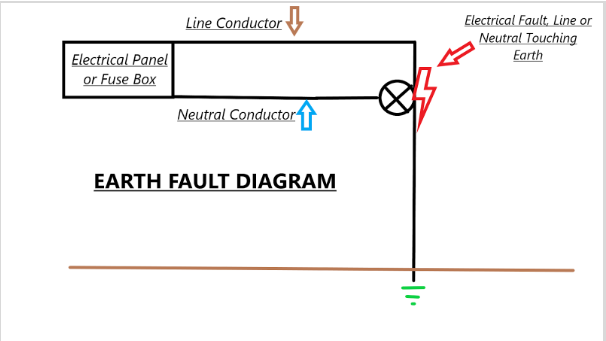
2.4) Arc Faults
Arc faults are caused by damaged or faulty wiring that allows electricity to "arc" or jump between different types of wires. This creates heat and sparks, which can ignite surrounding materials and cause an electrical fire. AFCI (or AFDD) breakers (Arc Fault Circuit Interrupters) are designed to detect these dangerous arcs and shut off the power before the situation becomes hazardous.
2.5) Power Surges
A power surge happens when there is a sudden spike in the electrical supply, often due to light fixtures, large appliances, or external factors like lightning strikes. Surges can cause fuses to blow or breakers to trip to protect your electrical devices from damage.
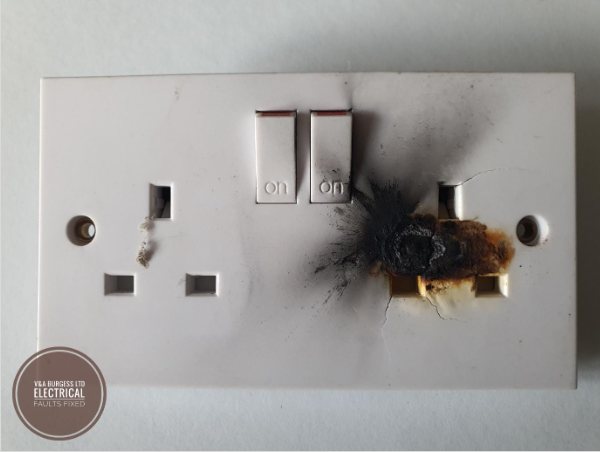
2.6) Faulty Appliances
Faulty appliances can draw more current than they should, causing an overload in the circuit. Appliances with internal wiring problems or loose connections can lead to frequent tripping of the circuit breaker or the fuse blowing on a regular basis.
Back to top3) Signs of More Serious Electrical Issues
When dealing with blown fuses or tripped circuit breakers, it’s important to recognize the signs of a bad circuit breaker or other significant electrical problems:
Burning Odor or Burning Smell
If you notice a burning odor coming from the breaker box or an electrical outlet, this could indicate an overloaded circuit or electrical system issues. A burning smell is often a sign that too much current is flowing through the wires, creating a fire hazard. This requires immediate attention from a qualified electrician.
Frequent Tripping
If a circuit breaker keeps tripping, an RCD or GFCI keeps shutting off power, this could indicate deeper electrical system issues, such as faulty wiring, arc faults, or an electrical overload. If you experience frequent tripping on a regular basis, it's a good idea to have an electrical inspection carried out.
Sparks or Exposed Wires
Seeing sparks or noticing exposed wires is a red flag for a serious electrical fault. Exposed wires increase the risk of electric shock and potential fires and should be addressed immediately by a professional electrician.
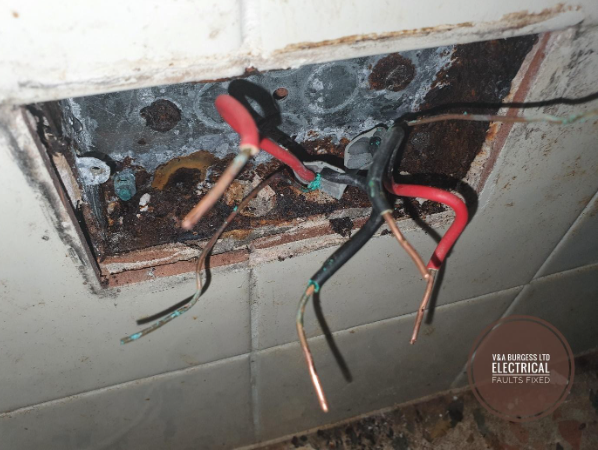
4) Safety Hazards and Prevention
Ignoring these electrical hazards can lead to severe consequences, including electrical fires, damage to electrical appliances, or electric shock. Here are some ways to help prevent these hazards:
- Use the Right Fuse: Always replace a blown fuse with a new fuse that has the correct amperage rating for the circuit.
- Avoid Circuit Overload: Spread out the usage of electrical devices across multiple circuits to avoid overloading any one circuit.
- Upgrade the Electrical System: In older homes, outdated wiring may not handle the flow of electricity needed for modern appliances. Consider upgrading your electrical panel and rewiring when recommended by an electrician.
- Install AFCI and GFCI Breakers: These specialized breakers can detect arc faults and ground faults, respectively, providing added protection against electrical hazards.
5) When to Call a Professional Electrician Out to Help
While some minor issues can be resolved by replacing a fuse or resetting a breaker, more complex problems should be handled by a licensed electrician. If you notice frequent issues like sudden loss of power, burning smells, or frequent tripping, it's time to consult a qualified electrician. They can perform the necessary electrical repairs and ensure that your breaker panel, consumer unit, junction box, and other electrical components are functioning safely and in compliance with the National Electrical Code or wiring regulations in your area.
Back to top6) Conclusion
We have covered the question of WHAT DO TRIPPED CIRCUIT BREAKERS AND BLOWN FUSES INDICATE and hopefully the article has been helpful. In summation, blown fuses and tripped circuit breakers can become common occurrences, but they should never be ignored. They are often symptoms of underlying issues that, if left unaddressed, can escalate into more serious problems such as potential fires or damage to electrical appliances.
If you're experiencing these issues on a regular basis, it's vital to seek professional help to assess the potential causes and make the necessary repairs
By recognizing the warning signs and taking preventive measures, you can ensure your home or business remains safe and that the flow of electricity through your circuits is steady and secure. Whether you're dealing with an overloaded circuit, short circuit, or ground fault, keeping your electrical system well maintained is key to avoiding potentially dangerous situations and costly repairs. Always consult a certified electrician to deal with electrical issues, and remember, safety first!
Back to top
Read more articles
- Log in to post comments

